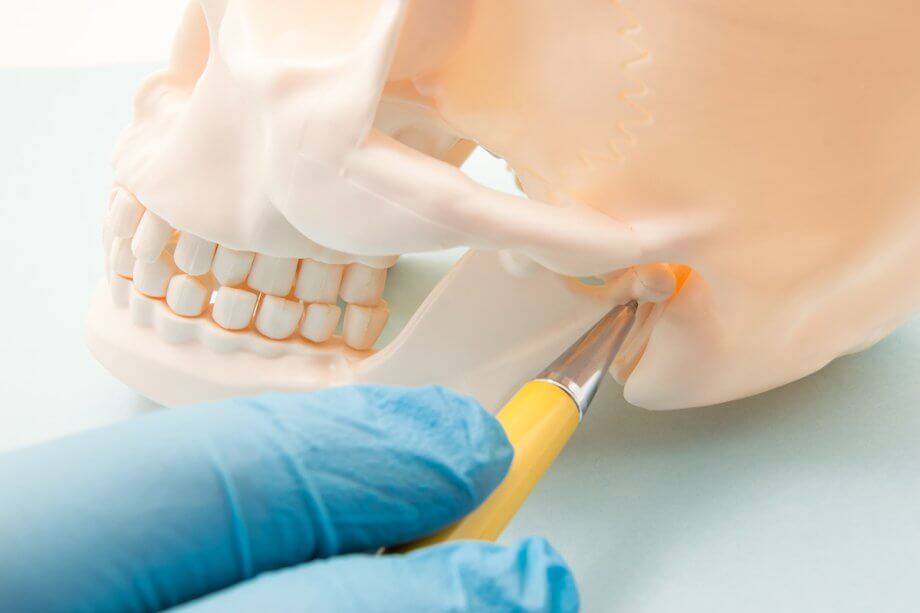Commonly referred to as TMJ disorder or TMD, temporomandibular joint disorder leads to pain along the jawline that can easily spread throughout the face, neck, shoulders, and back. The good news is that, for most people, this pain is not constant.
TMJ disorder often comes with flare-ups that will eventually subside. But how long do they last? And what can you do to find relief? Here is everything you need to know about TMJ flare-ups — and how to get rid of them.
What Causes TMJ Pain?
TMJ pain can arise for many different reasons. For instance, it can be found in those who suffer from bruxism — a condition that involves grinding the teeth and even clenching the jaw. Many don’t even realize they are doing it because it happens at night while they are sleeping. Unfortunately, it can cause them to wake up in pain.
A few additional causes are:
- Trauma to the jaw, neck, or head
- Arthritis
- Periodontal disease
- Genetics
- Parkinson’s disease
- Chewing gum
High levels of stress and excessive jaw movements can also lead to pain in this joint.
TMJ Flare-Up Symptoms
As mentioned, TMJ pain can come and go. When the pain returns after being without any symptoms for a while, this is referred to as a flare-up. You will know you may be having one when you experience any of the following:
- Headaches
- Earaches
- Pain around the jaw joint
- Facial swelling
- Popping, clicking, or grinding noises when opening and closing the mouth
- Pain in the shoulders and neck
- Reduce range of motion in the jaw
- Lockjaw
Keep in mind that each person will experience TMJ pain differently and the amount of time between flare-ups can differ.
How Long TMJ Flare-Ups Last
There is no definitive time for how long a TMJ flare-up will last. It will vary from one person to the next, depending on the cause, how severe the inflammation is, and what is being done to reduce it.
In other words, the pain can last for just a couple of days — or it could last a week or longer.
TMJ Treatment
There are a few things you can do to reduce your risk of TMJ flare-ups, as well as what you can do when they arise. The level of severity will determine the best treatment option.
TMJ Treatment at Home
When a flare-up occurs at home, you can take steps to ease the pain and find relief. Give these at-home TMJ treatment tips a try:
- Rest your jaw
- Eat soft foods
- Apply ice to reduce swelling
- Take an over-the-counter anti-inflammatory, such as ibuprofen
TMJ Treatment at the Dentist
Your dentist has treatment options that will get rid of your flare-up pain and prevent it from coming back. Depending on your circumstance, this could include any combination of the following:
- Physical therapy exercises
- Medication
- Botox injections
- Night guards
Your dentist will be able to evaluate your TMJ pain to find the best treatment option for you.
Frequently Asked Questions
What happens if I do not treat a TMJ flare-up?
Not treating a TMJ flare-up or TMJ disorder, in general, can lead to more severe symptoms and a decreased quality of life.
How does stress impact TMJ pain?
Clenching the jaw and grinding the teeth are the main causes of TMJ pain. Both of these are exacerbated by increased stress. The extra tension in the jaw can increase the risk of jaw pain.
Find Relief From Your TMJ Flare-Up
If you regularly suffer from TMJ flare-ups, take steps to get relief with the help of Minoli & Vijay, DDS PC. There are many nonsurgical treatment options available that can put your jaw at ease — and improve your overall quality of life.
Contact us today at 212-888-4140 to schedule your visit.

